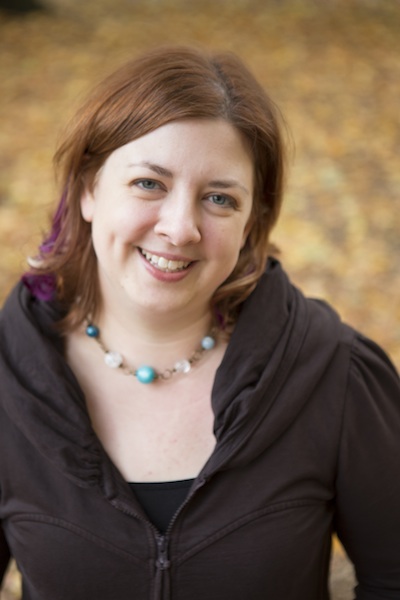The Fiction of Writing Fiction
 Saturday, January 16, 2010 at 9:14PM
Saturday, January 16, 2010 at 9:14PM For the longest time, I thought I couldn't really be a writer. I had a narrow definition of what a "real" writer was: someone who wrote fiction, preferably novels. (Novels occupied a very high spot on my Totem Pole of Genres. I have chronicled this before.) Since I seemed incapable of writing fiction, I thought I was incapable of being a writer.
I have since reconfigured my thoughts on writing. In the past, anything labeled nonfiction occupied a lowly slot on the totem pole. But I now embrace nonfiction as a viable and noble art form. I even started working toward my MFA in creative nonfiction. Because the program is segmented by genre, I am relegated to writing nonfiction only, which means novels and short stories are off-limits in an official capacity.
So guess what happened in the middle of my first semester? I had my first novel idea. Actually, it started out as an idea for an article. While discussing it with my husband, it morphed into a story, a book, a novel.
A novel.
Shit.
I wrote this to my faculty advisor:
Something terrible has happened. I have an idea for a novel. In all these years of writing, I haven't had a single serious fictional story idea. And now I have one that I'm in love with and think has wonderful potential. Is this normal? To enroll in a creative nonfiction course of study and for the first time in life be called to write fiction? This happens all the time, right? Tell me it’s some perverse side effect of the creative process or a sort of rebellion against my chosen genre. I don't know what it is. ... Oh dear, oh dear. Where did this random fiction urge come from?
My advisor responded graciously to my frenzied tone. "I take your novel impulse seriously," he wrote. "It makes sense to me that when you are being creative in your life suddenly all sorts of new creative ideas spring to mind."
Yes, creativity sparks creativity.
Suddenly, fiction, which all my life had seemed like a foreign language I could read but not write, was nudging me, urging me to lend it my voice.Oh dear, indeed.
I attended my second MFA residency recently, ten days of lectures, workshops, and readings. I'd signed up for a "fish out of water" workshop in which poets and nonfiction writers would learn about the short story. Here's the kicker: In our very limited free time, we each took a stab at writing a short story. I estimate that I wrote mine in about three.
There is something liberating and terrifying -- but mostly liberating -- about this combination of speed, structure, and freedom. (I've written about this phenomenon before.) It's like we had quickie swim lessons and then got to jump into the pool and playfully practice our strokes. Yes, we were employing what we'd learned, but we were really just splashing around and playing. Nobody was going to drown, and no one was expected to be an Olympian, either.
I used to think that fiction writers made up everything, that there was no connection between their real lives and their stories. Then I started hanging around fiction writers and realized that their novels and short stories were peppered with people, places, and things they knew. This isn't to say that their fiction is autobiographical. Far from it in many cases. But I finally saw that I was allowed to bring myself to fiction in a way I'd thought was off-limits. Now I know that I can hear an interesting news item or overhear a conversation and use those as jumping off points for stories. My workshop story was sparked by a pair of old goggles that our instructor had dug out of her junk drawer.
In 2007 I wrote a few thousand words of fiction for National Novel Writing Month (NaNoWriMo). I was winging it, just writing blindly. I'd thought this meant I couldn't write fiction. But this is exactly what I did with my short story for my workshop. I wrote until I found the story. Honestly, this is what I do with nonfiction, too.
Writers are writers because we write. We write until we find the story. We write truths real and imagined, suspected and known. We write from and for ourselves, from and for the world. Writers write. It's so simple is magic.
I plan to spiff up the rough draft of that short story. I may go back to those few thousand words from NaNoWriMo. And I keep glancing lovingly at my new novel idea. It's sitting off to the side, patient and calm, just waiting for me to write it. The best part is that now I believe I can write it.



Reader Comments (7)
And I've been slower to alter my perception than you have. It's only recently that I've begun to see that there are other ways to write - ways that I can write - that have value and vailidity and which engage me.
Thank you for letting me know I'm not alone. Thank you for offering hope and inspiration. Thank you for showing that, as always, one thing can lead to another.
And I'm thrilled that you're finally edging your way towards fiction.
can't wait to hear more about the novel one day.
xoxo
and creative non-fiction is such a delicious sounding degree.